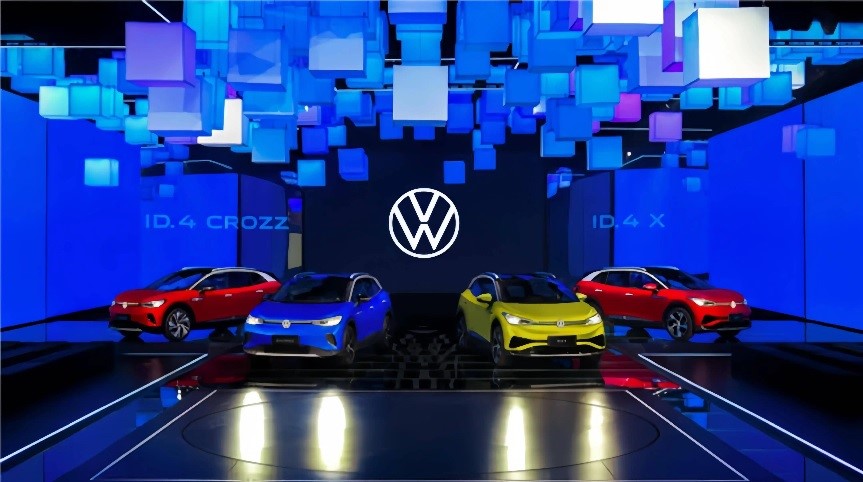At a time when the global automotive industry is undergoing unprecedented and profound changes, the Volkswagen Group (hereinafter referred to as "Volkswagen") is in the throes of a far-reaching transformation. This transformation is not only a comprehensive liquidation of the long-standing structural problems within the company, but also an inevitable choice to keep up with market trends and rebuild competitive advantages. In the context of globalization, the pattern of the automotive industry is being redefined, the rise of new energy vehicles, breakthroughs in autonomous driving technology and the rise of the sharing economy model are all challenging the bottom line of traditional car manufacturers, and Volkswagen, as one of the world's leading car manufacturers, naturally cannot stay away.
1. Background and challenges of transformation
Volkswagen CEO Oliver Blume has been candid in public appearances, especially in an interview with the German newspaper Bild, frankly pointed out the current serious situation facing the company, and made it clear that a series of cost-cutting plans are measures that the company has to take to fundamentally solve the structural problems that have plagued Volkswagen for many years. Weak demand for automobiles in Europe due to a slowdown in the economy and tighter environmental policies, as well as a significant decline in profitability in China after a period of rapid growth, have served as a magnifying glass to expose Volkswagen's internal management inefficiencies, redundant product lines, and poor cost control. Against this backdrop, the plans of the chairman of the Volkswagen trade union to close at least three factories in Germany, lay off tens of thousands of workers, and reduce the size of other factories are undoubtedly a signal of Volkswagen's determination to carry out a deep reform aimed at clearing the way for the company's future development by optimizing the allocation of resources and reducing unnecessary expenses.
2. the specific measures to reduce the plan
To support this ambitious transformation plan, Volkswagen has earmarked around 900 million euros (6.965 billion yuan) in its annual financial report for the implementation of a number of cost-cutting measures, including layoffs and plant closures. In addition, in order to alleviate financial pressure and maintain the competitiveness of the company, Volkswagen has also proposed a 10% reduction in employee salaries, which has caused a lot of controversy and discontent among employees, but the company's management has emphasized that it is necessary to maintain jobs in the current economic environment, avoid further layoffs, and ensure the sustainable development of the company. As Europe's largest car manufacturer, Volkswagen employs around 650,000 people worldwide, including 300,000 in Germany.

Pictured: Volkswagen's transformation pains: tens of thousands of layoffs and 900 million euros in cuts are inevitable
3. The strategic significance of transformation
In the face of profound changes in the global automotive industry, Ralf Brandstatter, Managing Chairman and CEO of Volkswagen Group China, proposed a clearer strategy for the Chinese market. He announced that by 2027, Volkswagen will launch 40 new models in the Chinese market, of which up to 50% are new energy models, that is, 20 models, covering two major types: pure electric and hybrid. This strategy not only demonstrates Volkswagen's great importance to China, the world's largest automotive market, but also reflects Volkswagen's positive attitude and forward-looking layout in the process of transforming the global automotive industry to new energy and intelligence. By continuously enriching its product line, especially in the field of new energy, Volkswagen aims to consolidate and expand its leading position in the Chinese market, while at the same time accumulating experience and setting a benchmark for the transformation of the global market.
4. Challenges and opportunities for transformation
In the process of promoting the transformation of electrification, the stability of the supply chain and cost control ability of the battery as the core component of new energy vehicles are directly related to the competitiveness of car companies. To this end, the Volkswagen Group is building new partnerships to efficiently manage and control every step of the way, from raw material procurement to battery recycling, in order to build a fully controllable battery supply chain. Volkswagen's goal is not only to build an efficient battery production system, but also to close the loop along the entire battery value chain, enabling the most sustainable and cost-effective way to manufacture batteries through technological innovation and process optimization. To this end, Volkswagen is accelerating the standardization process of battery technology, planning to introduce standard battery cells, which is expected to help Volkswagen reduce battery costs by 50% by 2030, and widely use about 80% of electric vehicles under the Group's brands, thereby significantly improving Volkswagen's competitiveness in the new energy vehicle market.
5. Summary
In summary, Volkswagen's cost-cutting plan is not only an immediate response to the current market environment, but also a precaution for the profound transformation of the automotive industry in the future. Through this series of reform measures, Volkswagen aims to solve the structural problems that have plagued the company for a long time, improve overall operational efficiency, and lay a solid foundation for the upcoming electrification and digital transformation. Admittedly, the road to transformation is full of thorns, with layoffs and factory closures undoubtedly bringing short-term pain and social controversy, but in the long run, it is the only way for Volkswagen and the entire automotive industry to move towards a greener, smarter, and more efficient future. With the continuous maturity of new energy vehicle technology and the improvement of consumer acceptance around the world, Volkswagen is expected to continue to occupy a leading position in the future automotive market and lead the global automotive industry towards a more sustainable and high-quality development with its deep technology accumulation, huge market base and flexible transformation strategy.






